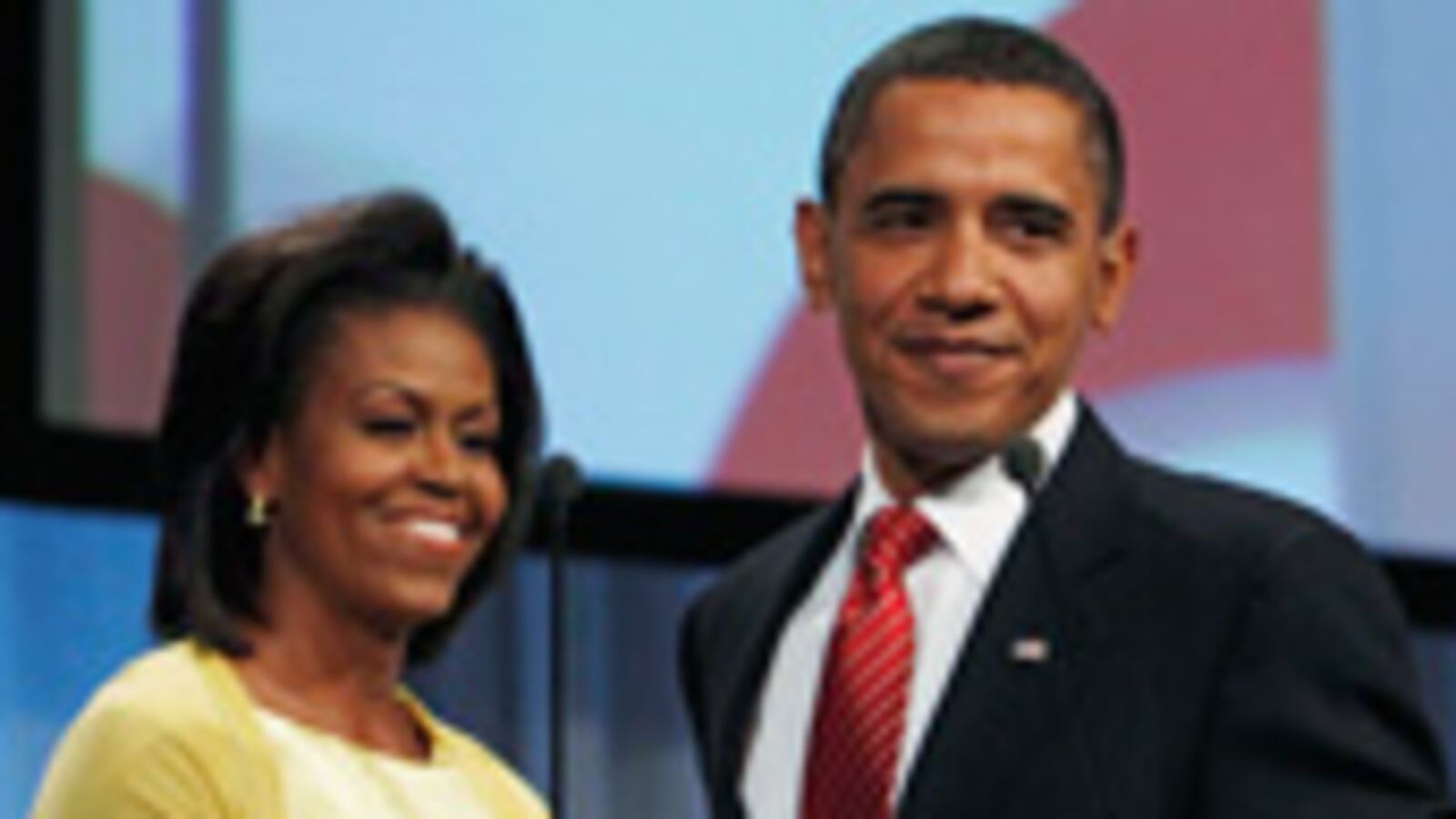
Critics can try to pinpoint the reason that Barack Obama’s charm offensive failed him in Copenhagen. But as a former Chicago resident and patriotic American, I’m glad the city lost the bid to host the Summer Olympics in 2016. The Olympics, while rooted in grand traditions of fair play and noble amateurism, have become a corrupted and corrupting institution. The bid to be host city is an opportunity for untrammeled graft and favor-trading; the bid for the medals themselves is increasingly a contest of bank accounts, not bodies. If you love sports, if you love America, you shouldn’t be embarrassed that Obama went to across the world to make a pitch for the Olympics and lost. You should be embarrassed he went at all.
To judge by a recent interview with Obama Chief of Staff Rahm Emanuel, the administration’s “strategy” for selling the Games appeared to be the “diversity” of Chicago (I suspect that is administration code for “did you notice he’s BLACK?” The rest of the world does not seem to be as into celebrating our awesomeness—dude, BLACK PRESIDENT!—as we are). That said, there is ample reason to suspect that the real calculations behind the selection of Rio de Janeiro had to do with finances. Personal finances. The International Olympic Committee is notoriously corrupt. Simply put: They make Chicago politicians look like the amateurs.
If you love sports, if you love America, you shouldn’t be embarrassed that Obama went to across the world to make a pitch for the Olympics and lost. You should be embarrassed he went at all.
An investigation prompted by the patronage scandals of the 2002 Salt Lake City Games found evidence of bribery and graft stretching back to at least 1992, with cities paying out millions of dollars in favors to IOC committee members in the form of first-class travel, free surgery (!) and cushy jobs for relatives. Looking back even further yields not just financial scandal but international disgrace: Juan Antonio Samaranch, leader of the IOC from 1980 to 2001, best known for leading the downward spiral into the commercialization of the Olympics, was a member of Spain’s fascist dictatorship for almost 40 years. And he was no low-level functionary: By the end of his career, he was Spain’s ambassador to the Soviet Union.
• The Daily Beast’s Richard Wolffe: Inside Obama’s Olympic StumbleIt was Samaranch, installed in the IOC in part through the maneuverings of Adidas, who turned the Olympics from a fusty tradition to a high-powered festival of licensing and sponsorship. He created the money machine that makes the millions of dollars cities spend—and the self-respect political leaders sacrifice—for a chance at hosting the Olympics worth it. Chicago planned to spend $22 million on the bid, a not-insignificant amount for a city looking at a $500 million deficit next year. Mayor Richard Daley justified the cost by pointing to a $22 billion payday. Twenty-two billion dollars, that is, IF this unprecedentedly enormous (for modern Chicago) project was managed with the economic and physical efficiency typical of large American bureaucracies. An independent accounting firm said the Games would generate closer to $4.4 billion for the area. And even that number is in jeopardy if—God help us—our national economic outlook remains sketchy. The official projection relies on private donations and ticket sales that may not come to fruition if people are still looking to cut back on non-essentials.
But it’s the Olympics, right! Michael Phelps! Little girls flying through the air! Kicking foreigners’ butts! Gold medals! WHY DO YOU HATE AMERICA?
The amount of money generated by the modern Olympics has made the Games themselves far more high-stakes than its founders could have imagined. And this game, most athletes lose. That’s in part because, literally, there are only three medals. But it’s also because the winners have become commodified—something to be sold to cereal manufacturers, insurance companies, T-shirt producers. And that means sponsors are willing to pay high prices to train athletes to earn the gold. There is a measurable relationship between dollars spent—by a country or a sponsor—to medals won. An Australian economist figured the price of each of the medals his country won in 2008 to be (in Australian dollars) $15 million for each bronze medal and $40 million for silver and gold.
Hardly any of this money goes directly to the athlete—most athletes, at least. Even in the high-profile sports of swimming and gymnastics, individuals who are not already stars live Spartan lives: One Olympian told a researcher that while training he made $6,000 a year, lived in a dorm room, and could fit all he owned into it. And if you are already a star? Well, that brings us to basketball. The 1989 rule change that allowed NBA players to compete in the Olympics actually applies to all professional leagues. In sports such as beach volleyball, professionals dominate and as soon as more sports’ organizations figure out how to generate revenue outside the Olympics (beach gymnastics?), one can safely assume professionals will colonize the Olympics as well.
With professionalization come higher stakes still, and with even more to gain, athletes will likely succumb at even greater rates to the temptation to cheat in the various ways technology allows.
What started off a celebration of amateur spirit and a unique accomplishment has become just another opportunity for more ESPN channels. Olympic officials justified the rule change by saying that amateur athletes wanted to compete with professionals: Excluding pros, they argued, meant that the winners of Olympic challenges were not, in fact, “the best in the world.” That may be true, but given the Olympics’ sordid history and debased presence, I wish Obama had refused to participate in the Chicago bid. Not because I want to deny anyone the chance to become “the best in the world.” It’s just that I want to believe we—and our president—are better than that.
Ana Marie Cox is Wonkette emerita, political junkie, self-hating journalist, and author of Dog Days. She has worked for Time, Mother Jones, Suck, and most recently, Radar. Follow her on Twitter.






